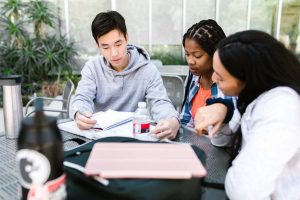Table of Contents
Students often ask themselves, “How do I handle these prompts effectively?” when writing Theory of Knowledge essays. The May 2025 TOK prompts allow you to show how well you can think clearly and analyze things.
I have been writing IB assignments for years and have helped many students so that I can help you through the process. This piece will break down all titles and give tips to make your essay stand out.
What Are the Questions for the May 2025 TOK Essay?
Here are the six May 25 TOK essay prompts to choose from:
- Do historians and human scientists have an ethical obligation to follow the directive: “Do not ignore contradictory evidence”? Discuss with reference to history and the human sciences.
- Is our most revered knowledge more fragile than we assume it to be? Discuss with reference to the arts and one other area of knowledge.
- How can we reconcile the relentless drive to pursue knowledge with the finite resources we have available? Discuss with reference to the natural sciences and one other area of knowledge.
- Do the ever-improving tools of an area of knowledge always result in improved knowledge? Discuss with reference to two areas of knowledge.
- To what extent do you agree with the claim “all models are wrong, but some are useful” (attributed to George Box)? Discuss with reference to mathematics and one other area of knowledge.
- Does acquiring knowledge destroy our sense of wonder? Discuss with reference to two areas of knowledge.
Each of these TOK essay titles offers different possibilities and difficulties. While some require philosophical thought or a concentration on valuable applications, others demand ethical study.
How to Choose the Best May 2025 TOK Essay Title?
The TOK essay titles for May 2025 are interesting topics that require a careful and sophisticated grasp of all Areas of Knowledge. Choosing a title that fits your interests, skills, and knowledge of the AOKs engaged will help you succeed. Ask yourself these questions to help you choose wisely:
- Which AOKs would I most be comfortable talking about? Consider how comfortable you are with history, math, or the arts.
- Could I provide pertinent actual case studies to back up my claims? Think about whether you have solid instances to support your arguments.
- Does the title’s phrasing make sense to me? Understand the critical phrases and ideas to prevent misreading the prompt.
For example, suppose you like to think about moral problems. In that case, the first title might speak to you. This subject begs for investigation of how ethical duties can affect human sciences and history knowledge. It might be better to choose a different prompt, though, if you don’t know much about these fields or aren’t sure what “contradictory evidence” means.
The third title, “How can we reconcile the relentless drive to pursue knowledge with the finite resources we have available?” might intrigue students interested in the natural sciences and how they can be used in real life. This question is a great chance to think about real-life problems in science study, such as lack of funds or concern for the environment.

Breakdown of May 2025 TOK Essay Titles
You must understand the May 2025 TOK prompts to write an interesting and well-organized essay. Let’s look closely at each title and figure out its main parts so you can write an interesting answer to any question in the list at the beginning of this article.
Title 1. Ethical Obligations in History and Human Sciences
The instruction “do not ignore contradictory evidence ” is at the heart of this question. It shows the moral problems that people who create knowledge face. This title is an excellent option for students who are good at figuring out right and wrong when they see things from different perspectives.
When you work on this prompt, consider how researchers and human scientists deal with biases, understand contradictory facts, and work around ethical issues. In history, for example, arguments about colonial stories often show how ignoring information that contradicts what we think we know about the past changes how we see it. In the same way, the debate over climate change statistics in the human sciences shows how important it is to acknowledge studies that disagree.
If you want to make your essay better, think about these questions:
- How does rejecting information that goes against what you believe change the reliability of your knowledge in these AOKs?
- Do moral duties sometimes clash with following practical or social rules?
Using real-life examples like historical revisionism or sociology battles will make your case more substantial and relevant.
Title 2. Fragility of Revered Knowledge
This title asks you to consider what “revered knowledge” means and its fragility. I think this prompt makes for a creative and thoughtful conversation. Using the arts as an example of AOK lets you use the rejection of Impressionism in the 1800s. What did this mean for the danger of artistic knowledge? How did social views change?
Combining the arts and the natural sciences makes an interesting difference. For example, Once considered to be absolute, Newtonian physics changed with Einstein’s revolutionary ideas. It shows how highly valued knowledge can be re-evaluated and changed.
Some things to think about when working on this prompt:
- What makes valued knowledge so quickly challenged or changed?
- How do AOKs respond when long-held beliefs run up resistance?
In this TOK essay, you must show that change is probable and necessary for knowledge systems to progress.
Get Help With Your Paper
Title 3. Balance the Pursuit of Knowledge with Resources
This title addresses the conflict between the never-ending desire for knowledge and the limited means available to support it. This prompt is critical now that people worldwide are more interested in sustainability and fair resource division.
In the natural sciences, you could examine how money and technology limit critical studies, such as finding new ways to treat cancer or go to space. It’s interesting to compare this to other AOKs, such as the arts. Although the arts often need more intellectual tools than real and financial ones, the sciences frequently do.
Some guiding questions are:
- How do limited resources affect the order of objectives in creating knowledge?
- Does the lack of resources have a more considerable effect on some areas of knowledge than others?
Using real-life examples, like arguments over whether to fund research into green energy or fossil fuels, can make your essay more powerful and interesting.
Title 4. Do Improved Tools Lead to Improved Knowledge?
This prompt is excellent for students who like to discuss growth and new ideas. Better tools often transform our capacity to acquire and manage knowledge, but does this always lead to better understanding? This question makes people think more deeply about how new technologies affect our lives.
For instance, AI and machine learning progress has changed how languages are translated. But do these tools fully understand the subtleties of culture? Putting together the arts and the natural sciences shows how tools can help different areas make different amounts of progress.
Think about these things:
- In what AOKs do tools always lead to more knowledge?
- There are limits to the knowledge that tools can make, right?
You can make your points using examples, such as how the Hubble Telescope has helped us learn more about the world or how digital art tools have changed how artists express themselves.
Title 5. The Usefulness of Models
“All models are wrong, but some are useful” is a quote credited to George Box that makes you think and question the usefulness and truth of models in creating knowledge. In my experience, this title suits students who like to think critically.
A great place to start is with mathematical models, like the ones used in epidemiology, to guess how diseases will spread. Even though they are simplified, they give us important information. When you pair this with another AOK, like history, you can talk about how models, like historical economic models, can help you understand the past.
Questions to help you with your analysis:
- How do models find the right mix between being accurate and being simple?
- Can the fact that a model is useful makeup for its flaws?
You can make a strong case by comparing examples of models that worked well with examples of models that didn’t work well enough to predict what would happen.
Title 6. Does Knowledge Destroy Wonder?
This title is an intellectual gem that makes you think deeply about how knowledge and desire are connected. This prompt is excellent for students who like to talk about vague ideas with clever examples to back them up.
Think about how gaining knowledge can either increase or decrease awe. Astronomy often amazes people with how big the world is, while clarifying natural events might make them less mysterious. Combining this with history gives it a new angle. History is often about finding secret truths or rethinking long-held beliefs.
Consider these questions for this Theory of Knowledge essay:
- Does understanding take the place of wonder with clarity, or does it make respect stronger?
- Are some AOKs more likely to keep the sense of wonder than others?
Examples from quantum physics, which constantly challenges how we see the world, or literature, which encourages us to use our imaginations, can help you tell an engaging story.
Conclusion
It can be scary to write a TOK essay, but you can do well if you plan and follow an organized process. You are asked to think critically and make connections between different types of ideas in the May 25 TOK essay titles. I’ve seen that IB students who take on this task do well in TOK and learn skills that will help them after the IB program ends.
Don’t forget that your essay is your chance to show how unique your point of view is. Pick a title that interests you, think about how to build your points, and let your imagination shine. Good luck, and if you need help, feel free to contact our skilled TOK writers at IBStudentHelp.com.

Nick Radlinsky
Nick Radlinsky is a devoted educator, marketing specialist, and management expert with more than 15 years of experience in the education sector. After obtaining his business degree in 2016, Nick embarked on a quest to achieve his PhD, driven by his commitment to enhancing education for students worldwide. His vast experience, starting in 2008, has established him as a reputable authority in the field.
Nick's article, featured in Routledge's "Entrepreneurship in Central and Eastern Europe: Development through Internationalization," highlights his sharp insights and unwavering dedication to advancing the educational landscape. Inspired by his personal motto, "Make education better," Nick's mission is to streamline students' lives and foster efficient learning. His inventive ideas and leadership have contributed to the transformation of numerous educational experiences, distinguishing him as a true innovator in his field.

May 2025 TOK Essay Prompts Writing Guide
The May 2025 TOK essay prompts ask some of the most interesting questions about what knowledge is and how complicated it is. These prompts will make you think critically and develop persuasive cases on topics ranging from moral problems in history and the human sciences to how knowledge affects our sense of wonder.

Tips for Writing a High-Scoring IB Essay
The IB rewards essays that are focused, analytical, and well-structured. In this guide, we’ll share practical tips for success, from using evidence effectively to polishing your arguments through thoughtful revisions.

The Benefits of Joining IB Study Groups
You may change the way you tackle the demanding requirements of the IB program by joining an IB study group. These groups provide a collaborative learning environment in addition to sharing notes and study sessions.

How to Handle Stress and Pressure During IB Exams?
Dealing with the stress and pressure of IB exams can be challenging, but it’s manageable with the right strategies. In this article, I’ll give you practical tips on how to stay calm and focused during exam season. From setting up a balanced study routine to developing a positive mindset and using effective stress reduction techniques, these methods will help you approach IB exams with confidence.

The Role of TOK in Interdisciplinary Understanding
TOK encourages students to look into how different types of information connect and combine, which leads to a more all-around way of learning. TOK acts as a link between subjects that might otherwise seem unconnected, such as relating mathematical ideas to natural patterns or examining the moral ramifications of science developments.

How to Conduct Effective Peer Reviews in IB Projects?
Peer review in IB projects is a vital skill that can greatly improve the quality of your projects and your academic growth. From what I’ve seen, peer reviews are a great way to get helpful feedback, see things from different angles, and make your work better.
